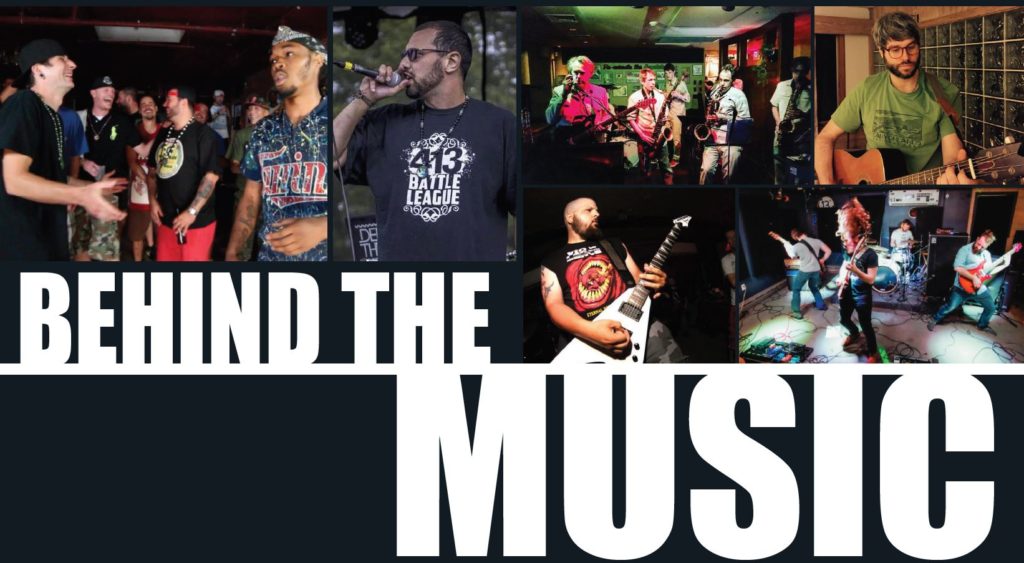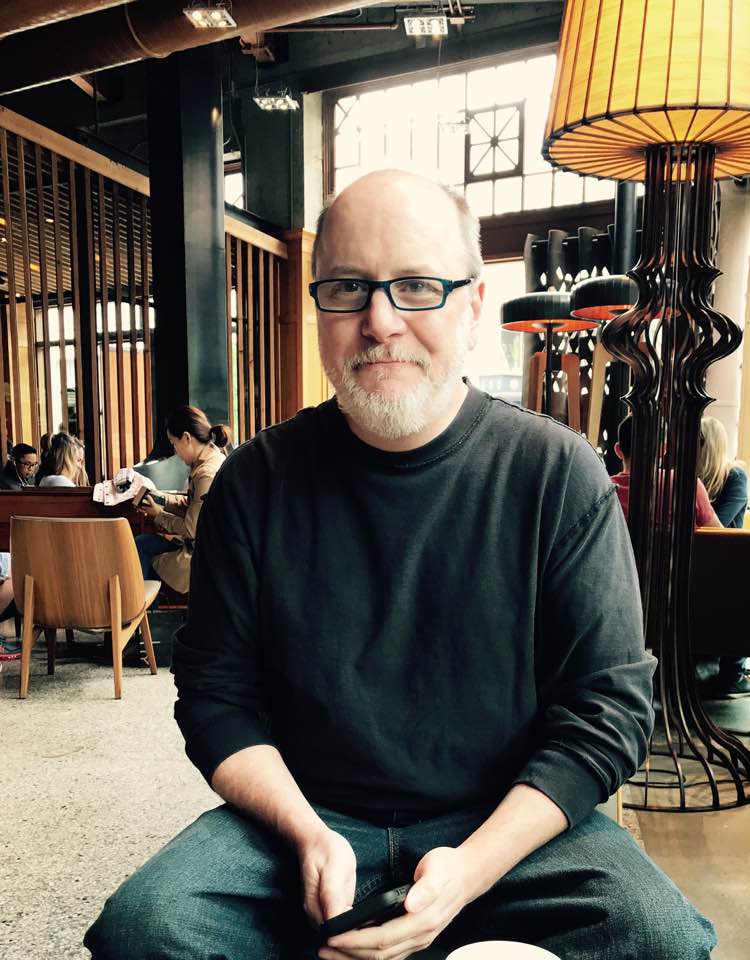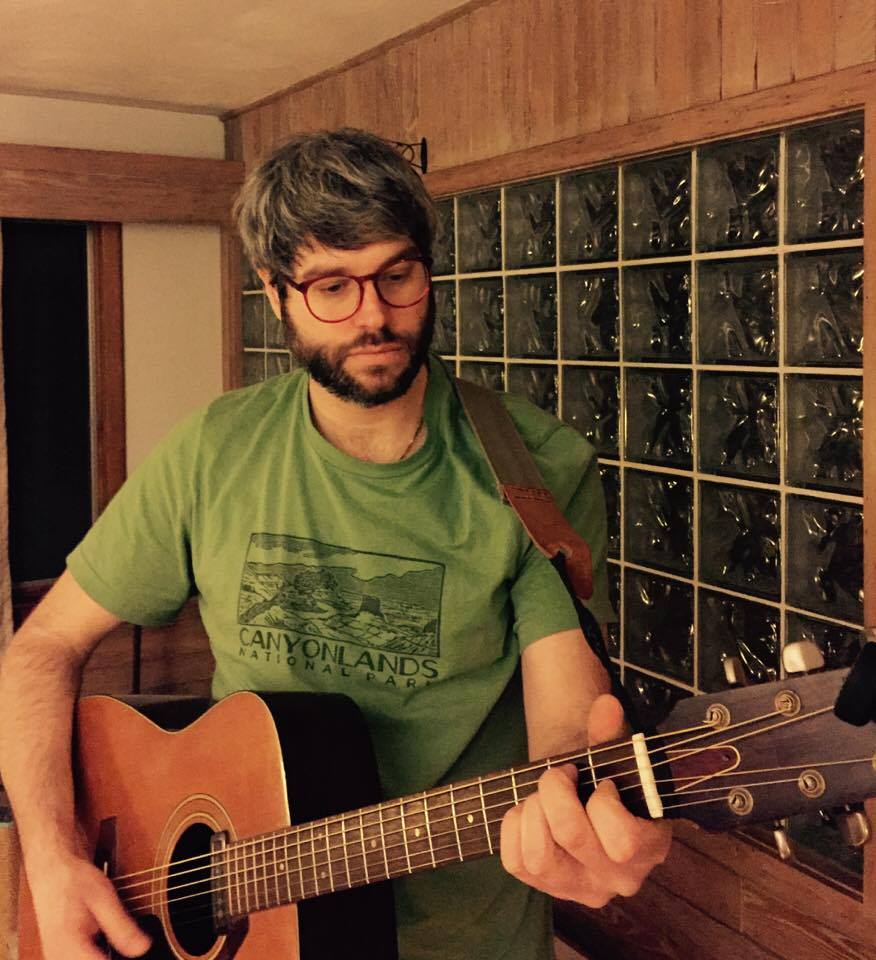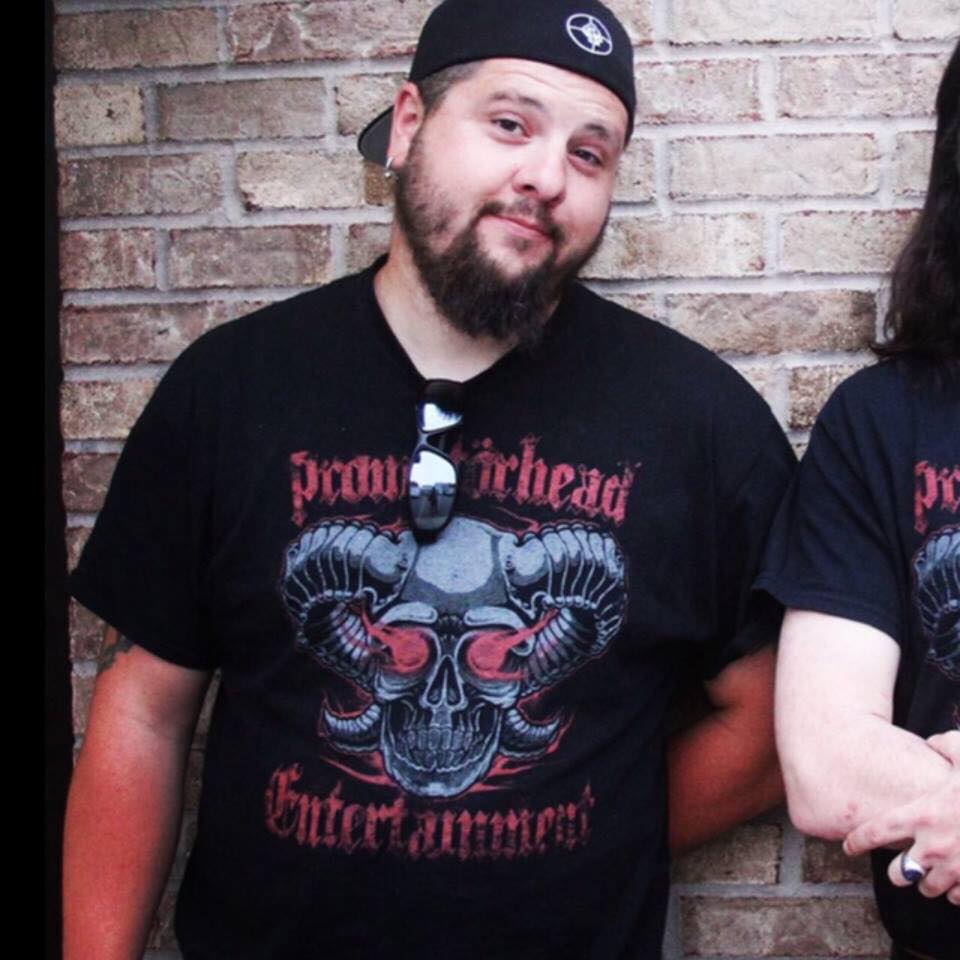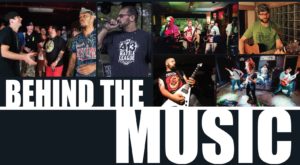For years the Iron Horse Entertainment Group with its quintet of venues — Pearl Street Nightclub, The Calvin, The Basement, The Iron Horse Music Hall, and Mountain Park — reigned over the Pioneer Valley music scene.
IHEG’s rule has irked some people.
Frustration with the entertainment group boiled over recently leading to a guerilla campaign against IHEG owner Eric Suher, and two widely circulated news stories about crumby conditions at Pearl Street for Baroness and at Iron Horse for Vanessa Carlton.
People have also been critical of IHEG’s preference to book big name bands that bring in the bucks over smaller, local acts.
IHEG has refuted these claims noting that the group is working on upgrades to the venues and that its stages have hosted, and in some cases helped launch the careers of, many local bands.
Now IHEG’s grip on the music scene isn’t as tight as it used to be. In the past five years, a crop of new venues have opened providing more options for local musicians seeking gigs and more variety for live music lovers.
This has area bookers and promoters excited. After all, venues don’t count for much if there’s no one jamming in them.
For some of the bookers, the newer venues are an opportunity to feature bands that wouldn’t typically play IHEG.
“I kind of want to represent all the different scenes that happen in this town,” said Robert Robinson, who’s been booking shows at Sierra Grille in Northampton. “Sometimes I won’t exactly like a band, but I’ll book them if I know that they’re hard-working, that they’re respectable, or that they’re doing something different.”
In addition to IHEG, music venues in the Valley include Hawks & Reed, Gateway City Arts, the 13th Floor Music Lounge, The Bing, The Pines, the Academy of Music, The Waterfront, Shenanigan’s, The Parlor Room, The Root Cellar, Maximum Capacity, Bishop’s, Flywheel, The Tank, and more.
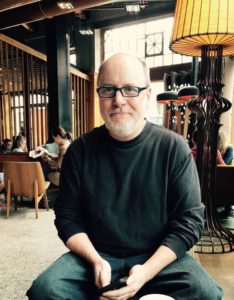 Jim Neill, IHEG’s marketing director, said the more music the merrier — IHEG even encourages new bands to play these venues. “Building a small following is the best way to show you are serious and to eventually end up on a larger stage,” IHEG’s FAQ section recommends. But the complaints aimed at the group’s venues are misguided, he said.
Jim Neill, IHEG’s marketing director, said the more music the merrier — IHEG even encourages new bands to play these venues. “Building a small following is the best way to show you are serious and to eventually end up on a larger stage,” IHEG’s FAQ section recommends. But the complaints aimed at the group’s venues are misguided, he said.
“Our focus is on booking national touring acts; Local music is one piece of what we do,” Neill said.
“We have successful, longstanding relationships with many local artists. Every band that plays here, local or national, has its own set of needs and expectations and we do our best to accommodate … There are almost always improvements underway, some not very glamorous or visible, but we think people will be pleased in the year ahead. Yes, we have new furniture for the Iron Horse green room. Despite the media frenzy when there’s a problem, the majority of shows come off without a hitch and we have lots of satisfied customers.”
Neill also said IHEG has installed a new, state-of-the-art HVAC system at the upstairs Pearl Street ballroom and would have a new HVAC system fully installed at the downstairs Clubroom by mid-August.
We decided to get in touch with some of the bookers who are working to pack some of the newer music venues. The three we spoke with said they got into the business for a number of reasons, but a common thread was a desire to make music their way — to benefit the bands.
“I mean, we pay bands,” said John Gulow, a co-founder of Promoterhead and the shows at 13th Floor Music Lounge in Florence.
“I started booking shows because my buddy’s band, they played … shows and were promised money and then never got paid and had to chase people down for months and months and still never got paid. I just thought, ‘We could do better.’ ”
Carla Racine, a promoter and publicist with Honey Pot Productions as well as editor and creator of The Buzz Magazine, shared some general tips about booking and promoting. She’s booked shows at venues across Western Mass, including Union Station, The O’s in Sunderland, Bishops Lounge, and the now closed HINGE and Ibiza Tapas as well as regional festivals and venues beyond the Pioneer Valley.
Racine promoted shows and booked some bands for the Arts Block in Greenfield for eight months before the venue transitioned into Hawks and Reed Performing Arts Center.
“The goal then was to get the venue on the map again with the local music scene before their rebrand,” she said. “The majority of my work is in creative consulting, assisting bands and venues in securing a solid billing or getting the right combination of talent aligned for a great bill. My work is primarily with local talent. Most of the events I do book are community events and The Buzz releases. They involve usually over three bands and multiple genres of music.”
One of the most important logistical elements to organizing a show is finding the right venue, but also making sure all the financial arrangements are in place, Racine said.
“Get all the details of production and venue expectations out on the table immediately, have a contract or agreement in email,” she said. “Communication and clarity is very important.”
Racine said promotion and publicity are important for getting the word out about a show.
“I cannot stress this enough,” she said. “A venue needs to have the show listed and promoted on all levels. Performing bands need to do the same.”
She said there is a lot of musical talent in the Pioneer Valley and typically sees about three live performances each week, which is helpful for finding bands to book.
“I tend to lean towards mixed genre shows. I like bringing people together from different scenes and expose them and their fans to each other … It often becomes something to remember and new relationships are formed between musical peers and new fans are turned on,” Racine said.
She said focusing on communication and deal making is the best way for venues and bands to negotiate payment.
“I am a huge band advocate; anyone that knows me knows that,” she said. “I strive to make any event I am involved with a good experience for everyone involved.”
Racine said she doesn’t think the “pay to play” model is very realistic for any business to utilize.
“To expect a band to cover the costs of production at a small local venue is ridiculous,” she said. “Most all the venues locally have a bar and/or food option; other ways to make revenue rather than the pay to play model, which seems to be more popular for larger scale events..”
Racine said if a band is being offered placement with a national act at a large venue the size of Academy of Music, Mountain Park, or the Calvin Theatre “buying into that opportunity” may be worth consideration provided if the venue reports on the sales of the local supporting act selling tickets.
“To owe a venue at the end of a show; I would never advise getting into that situation to any band,” she said. “In the case of signing onto guaranteeing a certain audience and falling short and then having to pay the house, nah. Not interested in that. But that seems like a pre-arranged situation.”
Neill said IHEG venues, including Mountain Park and the Calvin, do not engage in “pay-to-play.”
If you’re catching a show at venues like the 13th Floor Music Lounge in Florence, the Sierra Grille in Northampton, or getting ready for a rap showdown with the 413 Battle League, there’s always someone who has the thankless job of making sure everything is in place for all the musical magic to happen before your favorite band walks on stage.
The following are the stories of the people behind the music in the Pioneer Valley; the unsung wardens of art who book your favorite local bands and help promote those shows.
Genre Blender
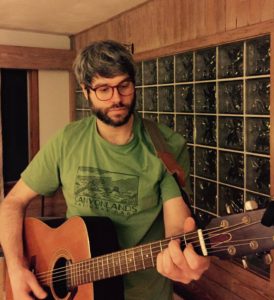 Robert Robinson is the man behind Acorns in the Blender, which books and promotes shows mostly at the Sierra Grille in Northampton. Acorns promotes acts in eclectic genres such as psychedelic rock, acoustic singer-songwriter folk, indie rock, electronic music, bluegrass, experimental music, hard rock, and hip-hop.
Robert Robinson is the man behind Acorns in the Blender, which books and promotes shows mostly at the Sierra Grille in Northampton. Acorns promotes acts in eclectic genres such as psychedelic rock, acoustic singer-songwriter folk, indie rock, electronic music, bluegrass, experimental music, hard rock, and hip-hop.
Robinson said he started using the moniker, “Acorns in the Blender” during the past year for booking shows. He’d been using the name for years unofficially, but realized it had been something that kept turning up in his life.
“I kind of want to represent all the different scenes that happen in this town,” he said.
Robinson, a 37-year-old bartender and musician with the Connecticut River Band, a local, psychedelic, lo-fi, folk-influenced rock band, said he was reluctant to get into work behind the scenes booking bands initially. Before booking at Sierra, he worked as a bartender at the former Elevens and One Bar & Grill, both of which were located at 1 Pearl St. in Northampton. Then he moved on to the 13th Floor Music Lounge where John St. Onge, the club’s head booker, passed the torch onto Robinson.
“I never really wanted to be the head booking guy there, but people kept asking me and they wanted to play shows,” he said. “And then I realized, ‘Well, maybe I can just put together a show here and there and I’ll bartend it so that I could have a shift.’ The next thing I know, I was kind of running the whole club.”
The role of head booker at 13th Floor has since passed to John Gulow and the venue has become known as a spot to find all things heavy music whether it’s hard rock, metal, or punk bands.
Robinson now books and promotes shows mostly at the Sierra Grille in Northampton for resurrection of the “Reanimate the Baystate” weekly concert series. The original iteration of the series was started a decade ago by Mark Sheehan of CarrotNoise Productions and celebrates the building’s heritage. The building at 41 Strong Ave., in Northampton, where the Sierra Grille, Mulino’s Italian Restaurant, and Bishop’s Lounge are all located, used to be known as the Baystate Hotel and for years live music could be found at the venue.
“Mark had a big impact on me because he was the first person to book me in this town,” Robinson said. “I kind of learned a lot from watching how he did things.”
Robinson knows what it’s like to be a member of a touring band and that helps him be a better booker. When he was in his 20s, Robinson toured across countries in Europe and in the United States with acts such as Panda Bear from Animal Collective and Kurt Vile. As a booker and promoter, he didn’t want to take advantage of bands. He wanted to be a “promoter you can trust.”
“I kind of always take the perspective of what’s this band feel like when they’re coming into this room now and unloading? I try to make them feel comfortable. I try to do my best to get them some free drinks or whatever I can do to make it easier on them. Even if nobody I came, I would take money out of my tips for gas money because I understood how hard it is. A lot of bar owners don’t understand that or they’re not there for that.”
For more information about Reanimate the Baystate visit facebook.com/TheSierraGrille. To find out more about Acorns in the Blender visit facebook.com/acornsintheblender.
Heavy Music Haven
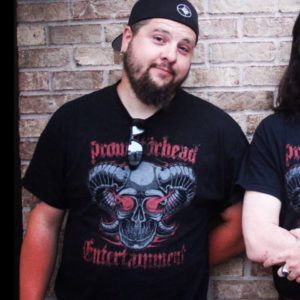 Loud, distorted electric guitar and crashing drums soaked in gravely, doom-ladened vocals with an intense bass line are what it’s all about for Promotorhead Entertainment.
Loud, distorted electric guitar and crashing drums soaked in gravely, doom-ladened vocals with an intense bass line are what it’s all about for Promotorhead Entertainment.
John Gulow is the co-founder of Promotorhead, but during the past year he has handed most of the reins of the promoting group over to others in the heavy music scene, so he can give his attention to booking anything from heavy acoustic acts to hardcore punk or metal at the 13th Floor Music Lounge in Florence above J.J.’s Tavern.
“If you like heavy music come out to a show. It’s only going to survive if people enjoy it. And I think we do something different here,” Gulow said.
Promotorhead was co-founded by Gulow and John McLaughlin in late-2011 and they started actively booking bands in February 2012, Gulow said. Since then, Promotorhead has booked at least a show a week at 19 venues across the region such as the Waterfront Tavern in Holyoke, Shenanigans Pub in Westfield, Metropolis in Brattleboro, and Cherry Street Station in Wallingford, Connecticut.
“I’ve come to realize that Western Mass is a pretty big area with not a lot of heavy music fans in comparison with Boston and other more populated areas,” he said.
“We might have heavy music fans in Springfield that don’t want to drive to Florence every week or vice versa. It’s hard getting those people out. So, my mindset is we can always do shows here. We’re never going to get people coming from Pittsfield or Greenfield or Westfield, so let’s bring shows to them [with Promotorhead].”
Right now, a big challenge for Gulow is branching out to book different styles and types of music.
“I’m kind of jumping outside of my comfort zone as far as [booking] music goes [at 13th Floor],” he said. “I have to branch out and learn about all these different genres of music that we can bring in here and make good shows happen.”
One big challenge in booking heavy music is the lack of local bands playing in heavier genres — that don’t play the same shows every week, he said.
“At least once a week we’ll have four bands play,” Gulow said. “I like to have two locals and two out of town bands. There’s not always two locals to do that.”
Gulow, who has played guitar since he was eight years old and played rhythm guitar in progressive death metal band Krakatoa, which has since changed into black metal band Godeater, said the audience for heavy music has remained consistent over the years.
“I think we’ve established Promotorhead as a whole as something where people can come out and not really know or care who’s playing and just know that they’ll get a quality show out of it,” he said.
Promoting a show a lot of the times comes down to pushing an event over social media sites such as Facebook, Gulow said. Handmade flyers are still popular, but reaching people over the internet is the main way to get an audience into a venue.
For more information about Promotorhead visit facebook.com/Promotorhead666. To find out more about 13th Floor Music Lounge go to 13thfloormusicandarts.blogspot.com.
Rap Battles in the 413
 When it comes to rappers duking it out in a battle of words, one of the best ways to see rap artists face off against each other in the Pioneer Valley is with the 413 Battle League.
When it comes to rappers duking it out in a battle of words, one of the best ways to see rap artists face off against each other in the Pioneer Valley is with the 413 Battle League.
“I think people are pleasantly surprised when they go to their first one,” Jason Weeks, co-founder of the 413 Battle League, said. “It’s not 8 Mile where there’s a gang of guys who beat up this guy and they’re facing off onstage and they fucking hate each other. It’s not like that. A lot of guys know each other. You guys are cool. You’ve hung out and had a couple of beers. You’ve been in the same league for years. It’s a family affair kind of.”
There’s some ad libbing and freestyling spontaneity to the battles, but most raps are written before a battle commences, Weeks said.
One of challenges for booking battle league events is finding venues, Weeks said. There’s no consistent venue at which Battle League shows take place.
“There aren’t a lot of good rooms right now that aren’t IHEG-owned, which is tough to deal with because of the cut that they give people and there’s not a lot of leeway with them either,” Weeks said.
Weeks said the Battle League used to be a regular fixture at the Waterfront Tavern in Holyoke, but a change in ownership ended that relationship.
“We were at The Waterfront for a long time. The Waterfront was a great venue. A little beaten down, but they were very friendly to the artists. They had a large room and we are able to bring crowds of 300 to 400 in there. We were able to bring international acts like the Battle League, King of the Dot, down from Canada to do their first event on the East Coast.”
Weeks said he finds it difficult to book hip-hop shows at venues in Western Massachusetts either because venues are too far away from the Springfield area, where most of the audience travels from, or club owners aren’t interested in booking hip-hop.
“Not to stereotype the whole area, but it’s tougher to bring a crowd to Northampton to a show,” he said. “It’s been tough to find a venue that’s steady.”
One venue that has been receptive to hosting rap/hip-hop battles is El Cid Lounge in Ludlow, he said. They recently had eight rap battles at El Cid on May 20.
“There’s people coming from Connecticut, New York, the Boston area, Vermont, Maine,” he said.
Being creative with promoting shows can be a challenge, Weeks said, but by creating unique flyers and lineups, booking artists with a following, and building a supportive community most shows end up being successful.
“Hip-hop shows can be very boring and repetitive. If you’ve been to one you might have been to all of them at some point,” he said. “Lower end hip-hop shows can be very repetitive or not well run … I think that being cognitive of what’s going on and not playing your favorites [helps with that]. My friends all rap. It’s very easy for me to stick inside that zone.”
Weeks is also known by his stage name, Vorheez, and said mixing business with the artistic side of making music has helped him to be better connected in rap and hip-hop scenes.
“It came from me wanting to do more as a musician to play shows and go to different places,” he said. “If you have something that people enjoy and you have a product get it out there, man. In doing that, you learn how to book shows for other people.”
Chris Goudreau can be reached at cgoudreau@valleyadvocate.com.

